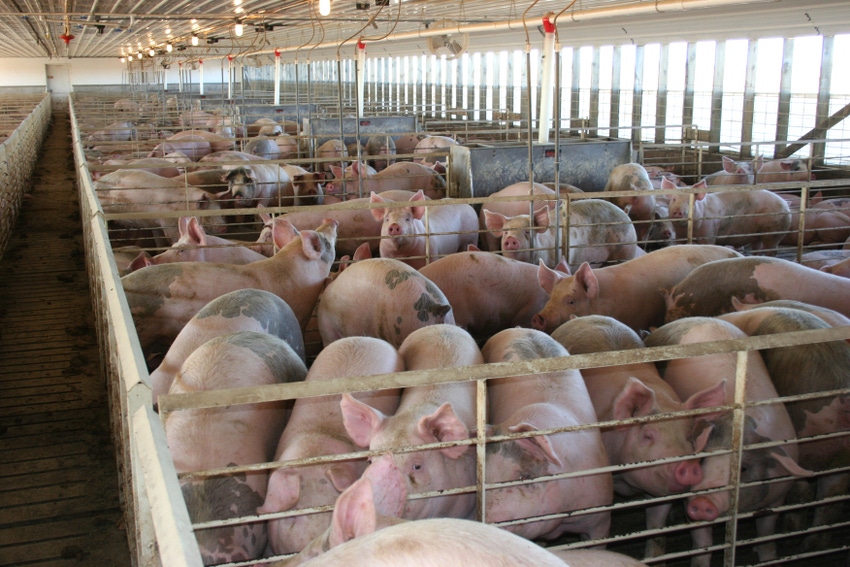
In July, Animal and Plant Health Inspection Service confirmed the presence of African swine fever in samples collected from hogs in the Dominican Republic, raising concerns that an outbreak could reach the United States. To improve vigilance in protecting U.S. herds, legislators are calling for $75 million to increase surveillance and protection efforts.
U.S. Representatives Angie Craig, D-Minn., Cindy Axne, D-Iowa, and Cheri Bustos, D-Ill., led Reps. David Scott, D-Ga., Jim Costa, D-Calif., Abigail Spanberger, D-Va., and G. K. Butterfield, D-N.C., sent a letter to House Speaker Nancy Pelosi pushing for $75 million in funding for APHIS to prevent and prepare for a possible African swine fever outbreak in the U.S. swine population. The members requested that House Leadership include this funding in the next continuing resolution or supplemental appropriations package that moves through Congress.
The letter came following the introduction of an amendment by Rep. Dusty Johnson, R-S.D., in the House Agriculture Committee mark-up of the agricultural provisions of the $3.5 trillion. Johnson introduced the amendment to fund additional veterinary countermeasures and equipment needed for animal depopulation, hiring and training of additional field staff to respond and address if an outbreak would occur and funding of the National Animal Health Laboratory Network for early detection.
In discussing the amendment, Johnson shares that if ASF hit the U.S. shores, it could cost $50 billion in losses over the next 10 years. Because of the tremendous amount of environmental and economic impacts, “we cannot afford to take this threat too lightly,” Johnson warned.
During the markup, Democrat Bustos urged to vote against the amendment but says it is important to remain vigilant about the threat of African swine fever. She remains committed to ensuring USDA has every resource needed, and she said she would be advocating for it in the upcoming government funding negotiations. Craig added the budget resolution wasn’t the best vehicle for the amendment, but also says its “essential to get out ahead” to prevent ASF from reaching the U.S.
“A confirmed ASF positive sample in any U.S. state or territory would be devastating to the American pork industry and rural economy. An outbreak in any part of the U.S would restrict pork producers from being able to participate in global trade,” wrote the Democrat members in their letter to Pelosi. “America’s pork producers are a crucial part of the food supply chain domestically and they contribute close to seven billion dollars in global exports. Therefore, significant additional investments in APHIS are vital.”
Jen Sorenson, president of the National Pork Producers Council, adds it is critical that USDA has the funds needed to protect the U.S. swine herd from African swine fever. “Although ASF isn’t a threat to people, among hogs it’s highly contagious with mortality rates approaching 100%. If ASF enters our country and we are unable to control it, hundreds of thousands of American jobs and billions of dollars would be lost,” Sorenson says. “We thank the members of Congress on this letter for their work to protect U.S. pork and call on Congress to act now."
Within the appropriations discussions, the Democrat members are advocating for the following allocations:
Increased funding of $20 million for additional staff for APHIS-Veterinary Service field force. This funding will build field capacity to respond to and address a potential ASF or other foreign animal disease outbreak on the mainland U.S. or U.S. territories.
Funding the National Animal Health Laboratory Network at the authorized level of $30 million. This investment would double capacity for ASF-PCR testing at NAHLN laboratories and build infrastructure and workforce capabilities to address foreign animal disease surveillance and response.
$25 million for the National Veterinary Stockpile for large animal depopulation and disposal equipment. If ASF is detected in the U.S., large-scale euthanasia or depopulation of animals will be necessary for the emergency control and eradication of ASF. The lack of resources within the NVS was a serious gap during the response to COVID market disruptions.
About the Author(s)
You May Also Like






